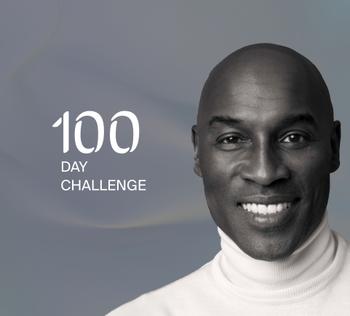Quick version
Longevity is about influencing your biological age – that is, how your body actually works, not how many years you have lived. Through proper diet, exercise, sleep, stress management and regular health checks, you can prevent imbalances and act in time.
Interest in longevity is growing rapidly globally, with research, investments and biohacking trends in focus. Science shows that stable metabolism, hormonal balance, low inflammation and good nutritional status are crucial for slow biological ageing.
Blood tests and health tests provide a clear picture of your inner health and make it possible to follow how lifestyle changes actually affect the body. Longevity is not a quick fix, but a long-term journey towards more healthy years.
It is important to distinguish between chronological and biological age. Your chronological age is the number of years you have lived – but your biological age reflects how your body actually functions, how your organs are doing, and how your cells are aging. At its core, longevity is about influencing biological aging.
For many, longevity means a holistic view of health where diet, exercise, sleep, stress management, and regular health checks make it possible to act in time. Interest is growing rapidly, both in the research community and among health-conscious individuals. New studies, biohacking trends, and a growing number of health entrepreneurs have made longevity one of the most talked-about areas in preventive health today.
Why is longevity relevant for all ages?
- In your 20s and 30s, you lay the foundation for future health. This is when lifelong habits are formed. Understanding your inner values early – values that reflect how your body is doing – can help prevent risks that would otherwise build up silently over time.
- In your 40s and 50s, the body begins to change – the biggest shifts occur in hormone balance, metabolism, and recovery, which are no longer the same as before. Regular health checks allow you to adjust your lifestyle and catch early signs of cardiovascular risks or metabolic changes.
- After 60, the need for careful follow-up increases. Monitoring blood lipids, kidney function, vitamins, and minerals becomes crucial for maintaining functionality and quality of life. Here it becomes particularly clear that it is not the birthday that matters, but the biological age. Two people of the same age can have very different health statuses depending on how they have lived and which risk factors they carry.
Why is everyone talking about longevity right now?
In recent years, longevity has moved from being a research field to becoming a global health trend. International investors are pouring billions into aging research, tech profiles are launching their own longevity projects, and social media is filled with tips on how to influence biological age through smart and health-conscious lifestyle choices. At the same time, people are seeking more evidence-based tools – such as regular health checks – to take control of their aging process.
The science behind longevity
Research shows that long life and good health are often associated with:
- Stable metabolism – steady blood sugar levels and a healthy balance of blood lipids.
- Hormonal balance – important for energy, mood, sleep, and recovery.
- Reduced low-grade inflammation – chronic inflammation is linked to many age-related diseases.
- Optimal nutrient status – the right levels of vitamins and minerals are essential for cellular function.
All of these factors are closely linked to biological aging – how quickly or slowly the body actually ages on a cellular level. By understanding and influencing these mechanisms, it is possible to slow aging and increase the chances of more healthy years.
Test your values – an investment in the future
Working preventively does not mean waiting for illness to appear before taking action; it means actively looking for imbalances and risk factors. Blood tests and health checks are therefore a central part of longevity.
By testing, you can get answers to questions such as:
- Are my blood lipids in balance?
- Do I have sufficient levels of vitamin D, B12, or iron?
- Is my body showing signs of inflammation or stress?
- How well are my kidneys, liver, and thyroid functioning?
Your health data gives you a more realistic picture of your biological age than the mirror or your birth date ever could. Testing also makes it possible to see how lifestyle changes actually affect the body over time.
Longevity is a journey – not a quick fix
In summary, living long and healthy is not about a single action, but about making small, smart adjustments over time. When you combine healthy habits with the insights that regular health checks provide, you build a stable foundation for the future. With the right tools to understand your body, you can act in time and use scientific methods to create the best conditions for a long, vital life.
Even though longevity is currently a global trend, it should not be seen as a short-lived hype. It marks the beginning of a new perspective on health – where biological aging becomes as important to understand as blood pressure or blood sugar.

























